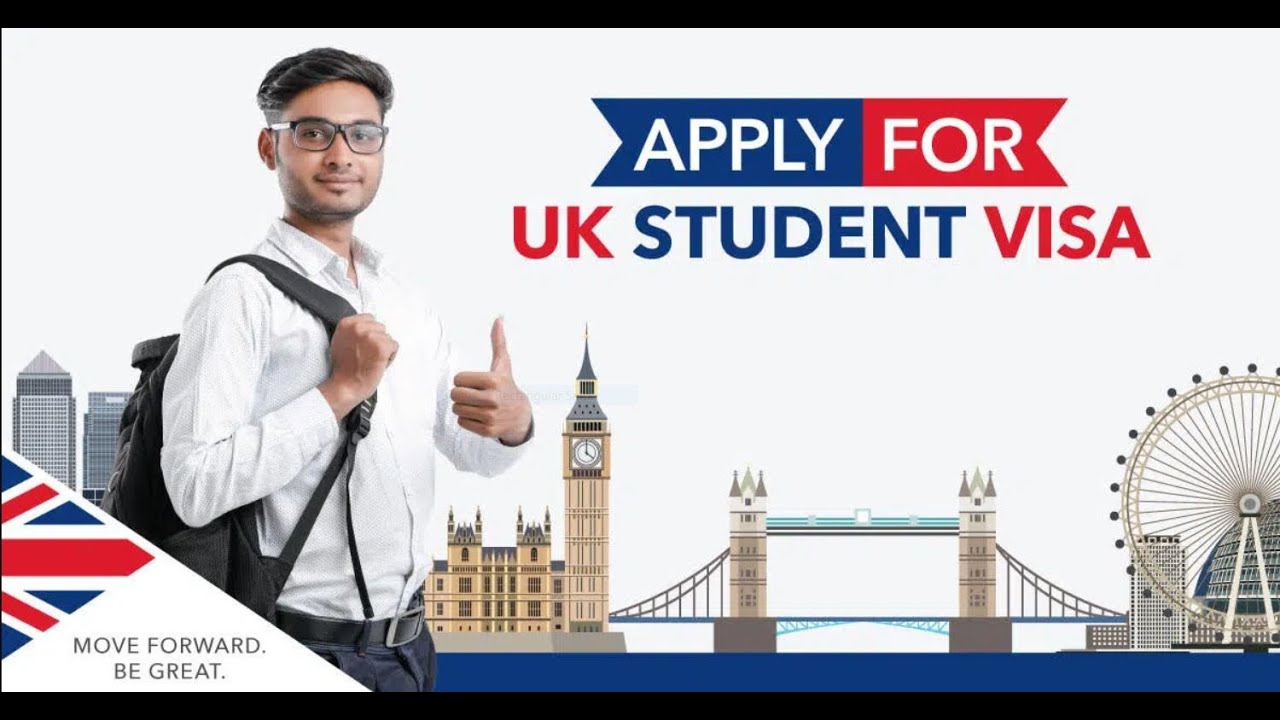The United Kingdom, home to world-renowned universities like Oxford, Cambridge, and UCL, attracts over 650,000 international students annually, with 13% growth in study visa applications in January 2025. For international students from countries like India, Nigeria, Pakistan, and beyond, a UK Student Visa (previously Tier 4) is the gateway to pursuing higher education in 2025. With iconic landmarks like Big Ben, a vibrant multicultural scene, and globally recognized degrees, studying in the UK offers academic excellence and cultural immersion. However, traveling to the UK with a student visa requires careful planning, from securing a Confirmation of Acceptance for Studies (CAS) to registering for an eVisa and navigating new Electronic Travel Authorisation (ETA) rules effective January 2025. This guide walks you through the entire process—eligibility, application, travel preparations, and arrival—ensuring a smooth journey to your UK study adventure in 2025.
Why Study in the UK in 2025?
The UK’s education system ranks among the world’s best, offering diverse programs from engineering to humanities, compact 1-year master’s degrees, and access to top employers. Key benefits include:
-
Prestigious Universities: Study at institutions with global recognition, boosting employability.
-
Cultural Diversity: Cities like London (40% foreign-born) offer vibrant, multicultural experiences.
-
Work Opportunities: Work up to 20 hours/week during term time and full-time during vacations on most courses.
-
Graduate Route: Stay and work for 2–3 years post-study with a Graduate Visa.
-
NHS Access: Pay the Immigration Health Surcharge (IHS) for free healthcare via the National Health Service.
In 2025, new rules like eVisa registration and ETA requirements streamline immigration but demand preparation. Let’s dive into how to travel to the UK with a student visa.
UK Student Visa Overview and Eligibility
The UK Student Visa is for individuals aged 16+ studying at accredited institutions for courses longer than 6 months (or shorter with work placements). It replaced the Tier 4 visa and operates under the UK’s points-based immigration system, requiring 70 points from:
-
Course Offer: An unconditional offer from a licensed sponsor (50 points).
-
Financial Proof: Funds for tuition and living costs (10 points).
-
English Proficiency: CEFR B2 (degree level) or B1 (below degree level) (10 points).
Eligibility
-
Age: 16 or older (4–17 for Child Student Visa at independent schools).
-
Course: Full-time degree (RQF level 6–8), below-degree course (RQF 3–5, 15+ hours/week), or part-time postgraduate course (RQF 7+).
-
Institution: Licensed student sponsor (e.g., University of Stirling, UCL).
-
Funds: £1,483/month (London, up to 9 months) or £1,136/month (outside London), plus tuition fees.
-
English: IELTS for UKVI, WAEC C6 (Africa), or 70% in 12th-grade English (India) may exempt tests.
-
Parental Consent: Required for 16–17-year-olds with proof (e.g., birth certificate).
Example: Priya, an Indian student, secures a master’s offer from UCL. She proves £13,347 (£1,483 × 9) for London living costs, passes IELTS, and gets her CAS, meeting all criteria.
Application Process and Documents
Apply online via GOV.UK up to 6 months before your course starts (outside UK) or 3 months (inside UK, before current visa expires). Processing takes 3 weeks (outside UK) or 8 weeks (inside UK). Priority service (£500 extra) speeds decisions.
Steps
-
Secure CAS: Receive a Confirmation of Acceptance for Studies (£25) from your university, detailing course and fees.
-
Gather Documents:
-
Valid passport.
-
CAS reference number.
-
Proof of funds (bank statements, 28-day minimum).
-
English proficiency (IELTS, WAEC, or equivalent).
-
Tuberculosis (TB) test results (if from countries like India, Nigeria).
-
Parental consent (if 16–17).
-
Academic Technology Approval Scheme (ATAS) certificate (for certain research courses).
-
Two passport-sized photos (45mm × 35mm).
-
-
Complete Online Application: Enter CAS, personal, and travel history details on GOV.UK.
-
Pay Fees:
-
Visa fee: £524 (outside/inside UK) per applicant, including dependants.
-
IHS: £776/year (full years), £388 (1–6 months).
-
-
Book Biometrics: Visit a visa application centre for fingerprints and photo.
-
Attend Interview: UKVI may ask about course details, study plans, and finances to verify genuineness.
-
Receive Decision: Get an eVisa linked to your passport via a UKVI account.
Tip: Double-check CAS details (course dates, fees) to avoid refusals. Use IDP Education or Shuraa for document support if needed.
Financial and English Proficiency Requirements
Financial Proof
Show funds for tuition (per CAS) and living costs:
-
London: £1,483/month (up to £13,347 for 9 months).
-
Outside London: £1,136/month (up to £10,224 for 9 months).
-
Funds must be held for 28 consecutive days, with the final balance within 31 days of application.
Acceptable Proof:
-
Bank statements (personal or parental, with birth certificate).
-
Loan letters or sponsor letters (if funded).
Example: Chinedu, a Nigerian student, shows £10,224 for a Manchester course and £15,000 tuition, using his father’s bank statement and birth certificate.
English Proficiency
Prove CEFR B2 (degree level) or B1 (below degree) via:
-
Tests: IELTS for UKVI, TOEFL, or Pearson PTE.
-
Exemptions:
-
Nationals of Canada, USA, or English-speaking countries.
-
Previous UK study with GCSE/A-Level English.
-
Indian 12th-grade English (70%+).
-
African WAEC/NECO C6.
-
-
UKVI may interview to confirm conversational ability.
Tip: Prepare for interviews by practicing course-related questions (e.g., “Why this university?”).
Travel Preparations
eVisa Registration
From January 2025, physical Biometric Residence Permits (BRPs) are invalid. Register for a UKVI account before December 31, 2024, to access your eVisa, linked to your passport.
-
Steps:
-
Create UKVI account on GOV.UK.
-
Link eVisa to current passport.
-
Update details if passport changes.
-
-
Travel Pre-2025: Carry BRP (valid until June 1, 2025) if issued.
Electronic Travel Authorisation (ETA)
From January 8, 2025, non-visa nationals (e.g., USA, Canada) need an ETA (£10) for short stays, but Student Visa holders are exempt. Ensure your visa, not ETA, is used for entry.
Travel Timing
-
Courses ≤ 6 months: Arrive up to 1 week before start.
-
Courses > 6 months: Arrive up to 1 month before start.
-
Do not travel before the visa start date.
Packing Tips
-
Hand Luggage:
-
Passport with eVisa access (UKVI account login).
-
CAS letter.
-
Student status letter (from university).
-
Financial proof (bank statements).
-
Return ticket (if applicable).
-
-
Checked Luggage: Academic transcripts, warm clothing (UK winters 0–5°C), laptop.
Example: Mei, a Chinese student, arrives in London on August 15, 2025, for a September course, carrying her passport, CAS, and bank statements in hand luggage.
Arrival and Border Procedures
At UK borders (e.g., Heathrow, Gatwick):
-
Present Documents: Show passport and eVisa (via UKVI account). Border Force may request CAS or student status letter.
-
Answer Questions: Confirm study purpose (e.g., “I’m studying MSc Engineering at UCL”). Be honest about plans to leave post-study or apply for Graduate Visa.
-
eGates: If eligible, use eGates but keep boarding pass for enrollment.
-
Collect Luggage: Proceed to customs (declare restricted items).
Tip: Avoid mentioning work as a primary goal to prevent entry issues.
Post-Arrival Steps
-
University Enrollment: Present passport, eVisa, and CAS. Submit boarding pass if requested.
-
Register with Police: Required for some nationalities (e.g., China, India) within 7 days if stated on visa.
-
Open Bank Account: Use student status letter for UK banks (e.g., Barclays).
-
Work Rights: Work 20 hours/week during term, full-time in vacations (check visa conditions).
-
Attend Classes: Maintain attendance to avoid visa cancellation.
Example: After arriving, Priya enrolls at UCL, registers with the police, and opens a Lloyds account, starting her master’s on time.
Challenges and Tips
Challenges
-
Visa Delays: Processing may exceed 3 weeks during peak seasons (July–September).
-
eVisa Errors: Incorrect passport linkage can block entry.
-
Financial Proof: Gathering 28-day funds is tough for some.
-
Border Scrutiny: Officers may question study intentions.
Tips
-
Apply 6 months early to avoid delays.
-
Verify eVisa details before travel.
-
Use parental funds with clear documentation.
-
Practice border questions (e.g., course details, funding).
-
Consult immigration advisors (e.g., UKCISA, IDP) for complex cases.
Frequently Asked Questions (FAQs)
-
When can I apply for a UK Student Visa in 2025?
Apply up to 6 months before your course starts (outside UK) or 3 months (inside UK, before current visa expires). -
How much does the UK Student Visa cost?
£524 per applicant (including dependants) plus £776/year IHS. Priority service adds £500. -
Can I work while studying in the UK?
Yes, up to 20 hours/week during term and full-time in vacations for most courses. Check visa restrictions. -
Do I need an ETA with a Student Visa?
No, Student Visa holders are exempt from the ETA requirement effective January 2025. -
What happens if my eVisa isn’t linked to my passport?
You may be denied entry. Register and verify your UKVI account before travel.
Conclusion
Traveling to the UK with a Student Visa in 2025 is an exciting step toward world-class education and cultural exploration. By securing a CAS, proving funds (£1,483/month in London), meeting English requirements, and registering for an eVisa, you’ll be ready to study at top universities like UCL or Stirling. Plan early, apply 6 months in advance, and carry key documents (passport, CAS) to breeze through border checks. Post-arrival, enroll promptly and explore work opportunities to maximize your experience. For more details, visit GOV.UK or consult advisors like IDP Education. Your UK study journey awaits—start preparing today!




